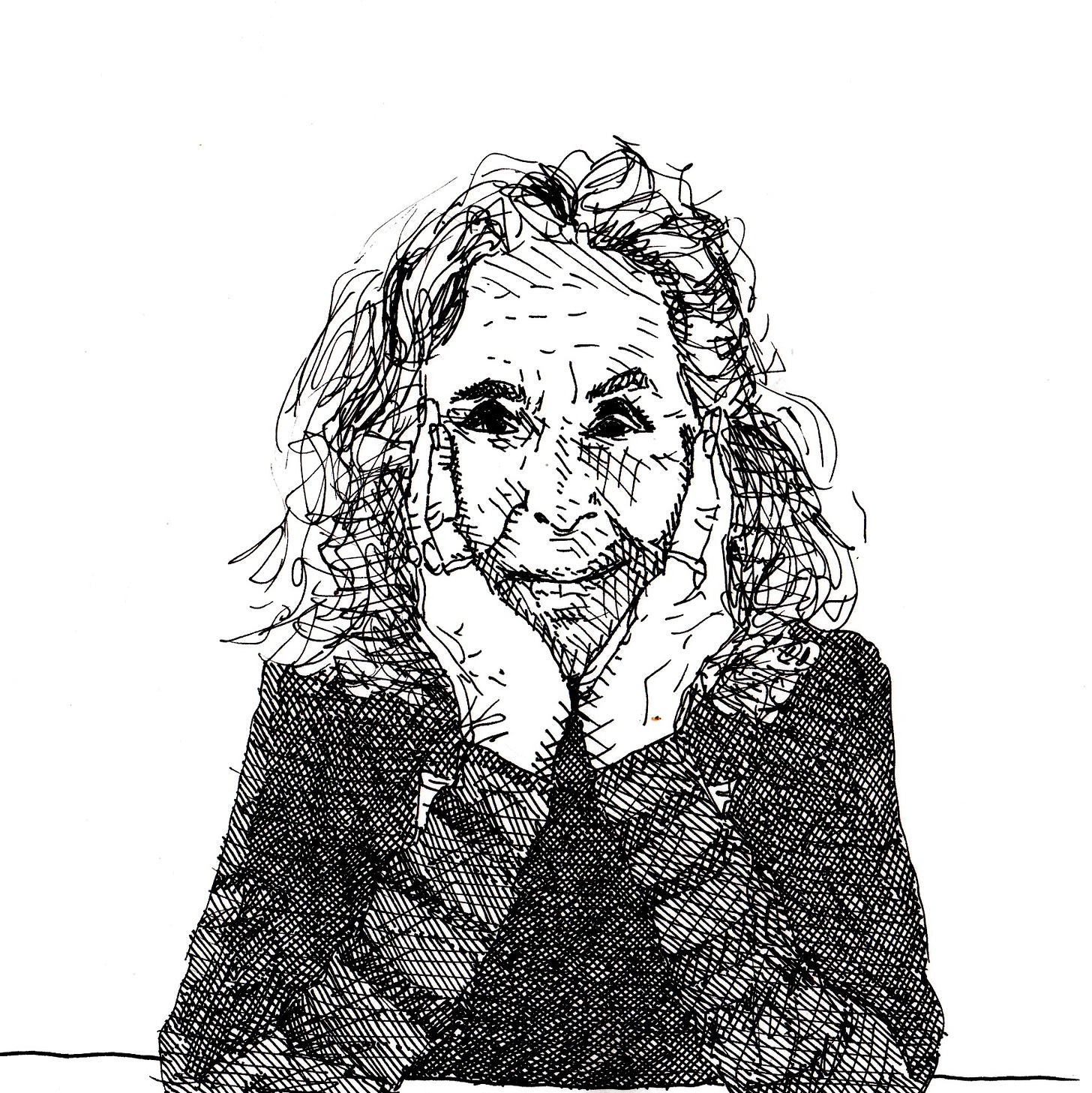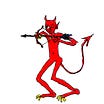Ask A Sober Oldster #3: Meredith Maran
"I became an alcoholic on my first day in LA, when I turned over my grief to a bottle of prosecco."
This new monthly interview series is a collaboration between Oldster Magazine and The Small Bow, ’s excellent newsletter about recovery and mental health, and will appear in both newsletters. Learn more about this collaboration in this Oldster podcast/videocast episode.

Meredith Maran is the author of 13 books, most recently THE NEW OLD ME: MY LATE LIFE REINVENTION, out from Penguin in 2017, and SEXPOT, pub date TBD. She’s a book critic and a culture writer for the Washington Post, LA Times, O Magazine, and other venues. She lives in Silver Lake, Los Angeles, and Palm Springs, CA with her nonbinary fiancée.
How old are you, and how long have you been in recovery?
I’ll be 72 in one week. I got sober on Christmas night 2016, at 65.
How did you get there?
I was a “normie” until I was 60, drinking martinis on weekends, falling asleep after half a lite beer. Then my perfect marriage imploded due to addiction (not mine), and I left my Oakland home and started over alone in LA.
I became an alcoholic on my first day in LA, when I turned over my grief to a bottle of prosecco. Five years and two attempts at sobriety later, my sober girlfriend told me she couldn’t reach me when I was drinking—the very same words I’d cried so many times to my ex-wife. I couldn’t do to her what had been done to me, so I stopped drinking that night. She took me to my first AA meeting the next morning. She and I didn’t last, but my sobriety did.
What are the best things about being in recovery?
Learning to reach inside instead of outside for pain relief. Seeing myself, in cahoots with God, as the source of and the solution to my own suffering.
What’s hard about being in recovery?
Oh, nothing much, she said sarcastically. Just not drinking.
I loved everything about drinking, starting with making my own syrups and growing my own cocktail herbs and inventing my own cocktails, and ending with escaping my egomaniacal self. Now my options are: sit in my own shit, or start shoveling.
I missed a lot of the fun parts of drinking, she said, again sarcastically. I never had a single hangover, blackout, DUI, episode of puking or self-humiliation. I never bottomed out (although I have a few friends and ex-friends who might disagree). So I’m not as motivated as a lot of drunks are to stay away from booze. (See what I did there? How I made sobriety seem much harder for me than it is for the average alcoholic?)
I loved everything about drinking, starting with making my own syrups and growing my own cocktail herbs and inventing my own cocktails, and ending with escaping my egomaniacal self.
What’s the best recovery memoir you’ve ever read? Tell us what you liked about it.
Sarah Hepola’s Blackout: Remembering the Things I Drank to Forget, because she did such a great job of de-glorifying female alcoholism, which is notably different from men’s IMHO, while also making herself such a relatable yet respectable character.
What are some memorable sober moments?
Every terrible thing that has happened to me since December 16, 2016, because every time, I wanted to drink, and I didn’t. My most wonderful sober moment was on January 8, 2022, the day I met my fiancée. I wanted to get drunk and stoned before we had sex for the first time, as I used to do. Then it hit me that for some strange reason, I’d picked a sober fuck buddy, Oh, and a sober life.
Are you in therapy? On meds? Tell us about that.
All the things! Therapy since I was 3 (the therapists all told my parents that they needed therapy, so they kept taking me to new therapists until they found one who didn’t say that). Antidepressants since my first girlfriend and I broke up (not my choice, to put it mildly) in 1996. I’m on Lexapro. In Zoom therapy with a heartful Canadian I’ve never met. My nonbinary love and I are in gender/sex coaching with a heartful Portlandian trans person I’ve never met. I have a brilliant, kind, hilarious AA sponsor in New York City. We’re hoping to meet someday.
Writing soothes and satisfies the craziness better than any other distraction from it. Being a writer—attempting to be rewarded for my writing via money, TV/movie deals, readership, renown, interesting gigs and other ego-pleasing appearances, grateful fan mail, positive reviews, juicy collaborations, and the like—can and does turn the sanest of us even crazier than we were.
What sort of activities or groups do you participate in to help your recovery? (i.e. swimming, 12-step, meditation, et cetera)
Except for the shitty things I do (displace my resentments and misplace my compassion, for example), everything I do helps my recovery: writing books and articles and emails that I hope will help; supporting other writers doing the same; hiking several times a week; weight-lifting and yoga classes; being useful to my friends, neighbors, family members, and partner; loving on my garden, vigorously seeking delight.
I also go to AA and AlAnon and Double Winners meetings two or three times a week. I theoretically meditate and pray first thing every morning, by which I mean I do that four or five mornings a week, except when I’m at my partner’s house, which is about half the time. You do the math. Work in progress.
Are there any questions we haven’t asked you that you think we should add to this? And would you like to answer it?
Does writing—and being a writer, which are two different things—help with whatever craziness drew you to pot and alcohol?
Writing soothes and satisfies the craziness better than any other distraction from it. Being a writer—attempting to be rewarded for my writing via money, TV/movie deals, readership, renown, interesting gigs and other ego-pleasing appearances, grateful fan mail, positive reviews, juicy collaborations, and the like—can and does turn the sanest of us even crazier than we were. (Insert shrugging emoji here.) [Ed.: ¯\_(ツ)_/¯] Still, a writer gotta write.








Dear Meredith: Of all the powerful things you said here, I love most: "Writing soothes and satisfies the craziness better than any other distraction from it." Yesssssssssss! Warmly, Margaret Mandell
Alcohol is a depressant. She gets depressed when she drinks alcohol. Sometimes she gets depressed because she can’t have a Ciroc, very dry, just open a good vermouth and smell it, then put it away, very dirty, just bring me a side of olive juice, please, shaken, not stirred, in a very expensive oversized pre-chilled Martini glass with the frost obscuring that is fine crystal, preferably Orrefors, in a bar in Manhattan. But not as depressed as if she drank said martini.